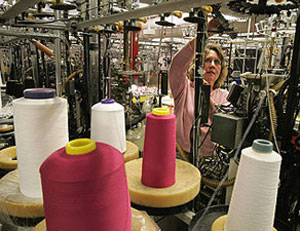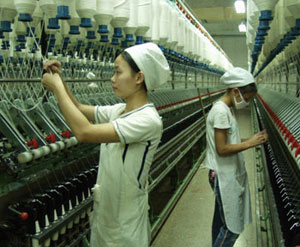Textile Process Operator
Tasks & duties

Textile process operators may do some or all of the following:
-
weave or knit fabrics, clothes and carpets
-
operate the machinery used to make textiles
-
wash and blend wool, yarn or cloth
-
check the quality of products
-
spin wool or other fibres to make yarns
-
dye or bleach materials
-
press, stretch or waterproof materials
Skills & knowledge

Textile process operators need to have:
-
knowledge of textiles and the products being made
-
knowledge of weaving, sewing and knitting methods
-
knowledge of safety regulations
-
understanding of quality control methods
-
practical skills, including the ability to use machinery
-
good communication skills because teamwork is an important part of the job
Those interested in senior positions may also find supervisory skills useful.
Entry requirements
There are no specific requirements for becoming a textile process operator as skills are gained on the job.
Secondary education
Three years of secondary education in English and maths is preferred.
Training on the job
Textile process operators can complete a National Certificate in Textile Manufacture while working. Textile process operators who work in the carpet and yarn manufacturing industry may also complete the National Diploma in Textiles. This qualification is designed to lead people into management positions.
Useful experience
Experience in assembly work is useful for textile process operators.
For more information, please refer to Career Services.
Document Actions
